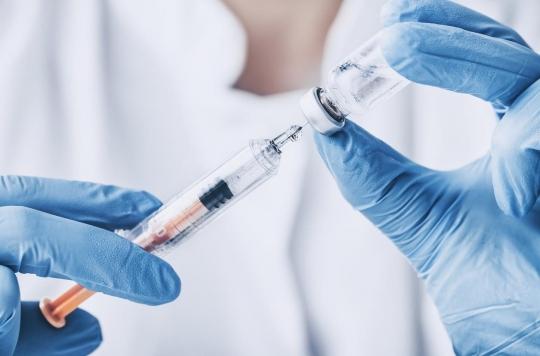Developed nearly a century ago, the tuberculosis vaccine (BCG) has long been known to boost the immune system of vaccinated people. An international team of researchers has just discovered the reason.

- The BCG vaccine increases the body’s immunity by stimulating the cellular response against pathogenic bacteria.
Caused by a highly resistant bacterium, Mycobacterium tuberculosis or Koch’s bacillus, tuberculosis is an often fatal infectious disease that can affect many organs, although its pulmonary form remains the most widespread.
If the disease continues to cause 1.5 million deaths every year worldwideincluding around 700 in France, the development of a vaccine – used for the first time on humans in 1921 – made it possible after the Second World War to stem its spread among the most vulnerable populations, especially children. .
A live attenuated vaccine
Known as BCG (for bacille Calmette and Guérin, named after the two researchers who discovered it), the tuberculosis vaccine has the particularity of being a live attenuated bacterial vaccine. While other vaccines lead to the production of antibodies directed against the pathogen responsible for the disease, BCG leads to a cellular response: the body then produces T lymphocytes, which play an essential role in the immune defense, and which then move towards the cells where the tuberculosis bacilli are found.
One of the unexpected effects of BCG has been observed for a long time: it makes vaccinated people less susceptible to other infections. Experts speak of “trained immunity”: the ability of the innate immune response to become more effective regardless of the type of reinfection. However, it was not yet known why this training effect could persist for years, even long after the death of the immune cells circulating in the blood at the time of vaccination.
In an article published in the journal Cell Host & Microbe, researchers from the Radboud University Medical Center at the Universities of Nijmegen and Bonn, aided by teams from Australia and Denmark, have presented a possible answer to this question. Their results are particularly interesting in the context of the Covid-19 pandemic.
A strengthened immune response
“We vaccinated 15 volunteers with the BCG vaccine and gave a placebo to five others for comparisonexplains Professor Doctor Mihai Netea of the Radboud University Medical Center in Nijmegen (Netherlands). Three months later, we took blood and bone marrow samples from these people.”
Notable differences were found between the two groups. In the blood of vaccinated people, a stronger immune response was noticed. Cytokines, whose role is to enhance immune efficiency by appealing to other cells, released more inflammatory messages. Moreover, the immune cells of the vaccinated people showed the activity of genes completely different from those of the placebo group, in particular those necessary for the production of cytokines.
A possible positive effect on the Covid-19 pandemic
The researchers also found that the BCG vaccine caused long-term changes in so-called hematopoietic stem cells, produced in the bone marrow and which are the “mothers” of all immune cells. “We have found that after vaccination, certain genetic materials become more accessible, meaning they can be read by cells more frequently.”, explains Professor Andreas Schlitzer, of the LIMES Institute at the University of Bonn (Switzerland). “This explains why vaccination leads to an increased immune response in the long term.continues Dr. Netea. This may well be the basis for the lasting impact of the Training Effect.”
For the researchers, these results are also interesting in the context of the current Covid-19 pandemic. They hope that the BCG vaccine could have a positive effect on the disease, reducing the risk of a serious course. According to them, this effect could be particularly beneficial to medical personnel, on the front line and therefore particularly vulnerable.
Pending the results of new studies, still in progress, the World Health Organization (WHO) however does not recommend mass vaccination with the BCG vaccinealso so as not to jeopardize the supply in the regions affected by tuberculosis.
.

















